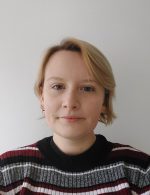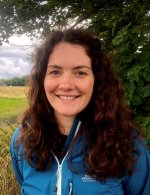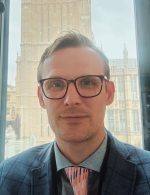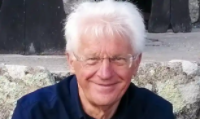Meet the Champions
The Champions bring together outstanding researchers across atmospheric, medical and social science to develop practical solutions for air quality issues, and then ensure that these interdisciplinary communities are connected to the public and wider policy and business environment to maximise the impact of their research.
The Champions will also look to work wider, working with other national and international stakeholders to facilitate joint-working, identifying areas of common interest and ensuring no duplication.
The Champions are:
Professor Sir Stephen Holgate

Stephen is Medical Research Council Clinical Professor of Immunopharmacology at the University of Southampton with a research interest in the mechanisms of asthma and allergy with over 1000 peer reviewed publications achieving an h index of 167. His research has focused on the roles of air pollutants, allergens and viruses in driving airway inflammation and remodelling involving injury to the epithelium and aberrant repair.
He was the founder chair of the Committee on the Medical Effects of Air Pollutants, chair of the Expert Panel on Air quality Standards, the Hazardous Substances Advisory Committee, and was a member of the Royal Commission on Environmental Pollution. He is Special Advisor to the RCP on Air Quality and in 2016 and 2020 published two influential RCP and RCPCH reports on the health impacts on air pollution.
He has been President of the British Society for Allergy and Clinical Immunology, British Thoracic Society, British Association for Lung Research and the Collegium Internationale Allergologicum. He has been Chair of MRC Population and Systems Medicine Board, the MRC Translational Research Group, Member of MRC and NERC Strategy Boards and Chaired the Main Panel A (Health and Life Sciences) of the UK Research Excellence Framework 2014. He is currently a member of NERC Council.
His contributions have been recognised by a number of awards including The King Faisal International Prize in Medicine and the J Allyn Taylor International Prize in Medicine, Lifetime Achievement Award of the World Allery Organisation and Honorary Degrees from the University of Ferrara Italy, Krakow Poland, Naples Frederico II, Italy and Exeter, UK. He was a Founder Member of the Academy of Medical Sciences, served on its Council and is Founder Chair of the Clinical and Veterinary Section of the Academia Europaea. In 2011, he was appointed Commander of the Order of the British Empire in the Queen’s New Year Honours for Services to Clinical Science.
Dr Gary Fuller

Gary is a senior lecturer at Imperial College London. He led the development of the London Air Quality Network to become the largest urban network in Europe and has a solid grounding in air quality measurement techniques. He has pursued network data analysis techniques to characterise sources, trends and changes in urban air pollution to determine if policies to improve air pollution are working. He has also developed and applied source apportionment techniques to quantify the impacts of PM arising from sources that are poorly represented in emissions inventories including construction, waste management, volcanos and urban wood burning.
Gary is a member of Defra’s Air Quality Expert Group, the Medical Research Council Centre for Environment and Health and is a project reviewer and steering group member for the Irish EPA. He was co-opted to the Committee on Medical Effects of Air Pollution for their review of the UK air quality index, has been a member of the air quality committee of Environmental Protection UK and science advisory committee member at AirParif. He is a co-author of Every Breath You Take, the Royal College of Physician’s report on the life-long impacts air pollution.
Gary is passionate about communicating air pollution science to policymakers and the public. He has given evidence to the Parliamentary Environmental Audit Committee and the Greater London Assembly. He is a regular contributor to the Guardian newspaper where he writes the Pollution Watch column and has taken part in the Guardian Ideal Cities series and Science Weekly Podcasts. His other writing credits include BBC Science Focus Magazine, the Irish Times, Wired, the Geographical Magazine, the Mail on Sunday and the US website Salon. He has a keen interest in air pollution history and how the lessons from the past can help future air pollution management. He explored these themes in his book “The Invisible Killer – the rising global threat of air pollution and how we can fight back.
Dr Suzanne Bartington

Suzanne is a Clinical Research Fellow in Environmental Health at the University of Birmingham and Honorary Consultant in Public Health at the UK Health Security Agency. She has research interests on the health effects of air pollution and environmental public policy formulation and evaluation. Suzanne is also a public health lead for the West Midlands NERC Air Quality Improvement Programme, a Natural Environment Research Council funded initiative led by the University of Birmingham, applying environmental science expertise to support air quality, health, and economic benefits across the West Midlands region. As joint lead for the University of Birmingham Institute for Global Innovation Clean Air theme she has developed multidisciplinary collaborative air quality research spanning the physical and life sciences, arts and humanities.
Suzanne also leads the UK wide TRANSITION Clean Air Network undertaking innovative research in collaboration with nine UK universities and over 20 cross-sector partners to address emerging indoor and outdoor air quality challenges across UK land surface transport systems.
As a Champion, she is committed to strengthening involvement of health professional and practitioner sectors in the Clean Air Programme and engaging with policymakers to ensure real-world application of research findings. Suzanne has an insight into local authorities and is interested in understanding health impacts of air pollution (from before birth to old age) and shaping public health focussed approaches to environmental policies. She is passionate about public engagement and communication and a strong believer in translating academic knowledge to diverse audiences.
Dr Sarah Moller – Co-Champion for Policy Impact

Dr Nat Easton – Knowledge Exchange Impact Fellow

Nat is an NIHR Southampton BRC Bridging Fellow at the University of Southampton, characterising air pollutants with direct consideration to respiratory health. She has recently submitted her PhD thesis on characterising and apportioning Particulate Matter with a focus on ports and shipping emissions. During her PhD she undertook an internship with the Maritime and Coastguard Agency performing a literature review and generating a database on maritime emissions reduction technologies, and also received funding to undertake a knowledge exchange project through the Higher Education Innovation Fund (HEIF). For the latter she investigated the spatial spread of emissions in Southampton, working with Southampton City Council, and held a Hampshire-wide workshop connecting Air Quality researchers with the local authorities in the region.
Nat has a background in chemistry but across the duration of her research career so far has worked within multidisciplinary teams spanning measurement science, isotopic geochemistry, toxicology and computational engineering. As such she is keen to facilitate working across disciplines and connecting different perspectives on tackling the clean air challenge. Working together with Sarah Moller, Nat is helping to develop programme outputs and facilitate knowledge exchange.
In addition to the knowledge exchange activities, as an Early Career Researcher (ECR) herself, Nat is looking to further promote the activities of ECRs in the programme.
Noel Nelson – Met Office Clean Air Community Engagement Ambassador

Noel is currently the Met Office Clean Air Senior Supplier with responsibilities to ensure Clean Air projects initiated by the Met Office are completed on time and within budget. Working closely with the Clean Air Champions, Noel will be ensuring that the initiatives developed by the Met Office and those tools and resources developed by their commissioned Wave 1 and 2 projects, are closely aligned to the long term aims of Clean Air and the activities of the Champions.
With a background in Physics and Environmental Technology, Noel has worked for the Met Office for over 30 years as an air quality scientist, where he developed his expertise in meteorology, dispersion modelling and climate science. Applying atmospheric dispersion science to air quality impact assessments, airborne transmission of animal diseases, weather and health relationships has been his focus over the years. Noel is particularly interested in the area where science meets policy and has worked for the Defra Air Quality Policy team helping to translate science evidence into policy decisions. Noel will be actively seeking out areas where Clean Air can contribute to national and local air quality policy.
Noel has also worked for the Royal Commission on Environmental Pollution, helping to develop several Command Reports. He was a founder member of the Institute of Air Quality Management, and a past Chair of the Institution of Environmental Sciences, where he is currently a Vice President and Chairs their Environmental Policy Committee.
Regional Clean Air Champions
The Regional Clean Air Champions join the Clean Air Champions in supporting the Clean Air Programme. The Regional Clean Air Champions will act as the central point for air quality research in each of the following regions: Midlands to North of England, Wales, Scotland, Northern Ireland. They will work to increase collaboration and impact across and beyond the programme.
Prof Paul Lewis – Wales

Paul is Professor Emeritus at Swansea University Medical School with a research background in the environmental impacts on respiratory health. As a regional Champion for Wales, he is looking forward to helping support efforts to raise awareness of poor air quality by engaging with academia, industry, local government, healthcare providers, the educational sector and third sector organisations in Wales so that they can work together to deliver clean air solutions.
As a Regional Champion he will engage all sectors to raise awareness of the Clean Air Programme and research projects funded through the UKRI Strategic Priorities Fund. He is an expert member on the Welsh Government Clean Air Advisory Panel helping advise on fine particulate targets in readiness for a new Clean Air Act in Wales. He is also a member of the Wales Air Quality Direction Independent Review Panel and Domestic Solid Fuel Burning in Wales – Task and Finish Group. He is a founding member of Health Air Cymru and a member of the Welsh Parliament Cross Party Group – A Clean Air Act for Wales. His academic research interest includes modelling how and why pollution patterns differ across Wales and predicting exposure-response of pollutants on specific diseases to provide evidence for legislation change and improved health management. After spending twenty-five years in academia, Paul now works in industry and continues to explore new innovative ways to reduce the impacts of air pollution and improve the way air quality is communicated to the public.
Dr Neil Rowland – Northern Ireland

Neil is a Research Fellow based at the Management School, Queen’s University Belfast. An applied economist with a background in economics and geography, he is part of the Administrative Data Research Northern Ireland (ADRC-NI) Environmental Health Research Group.
As part of a team made up of economists, health economists and social epidemiologists, Neil is carrying out research to understand the health and mortality impacts of outdoor air pollution in Northern Ireland using a variety of linked datasets.
An important element of this work is communication: bringing research findings to policymakers and the wider public to inform strategies for improving air quality and to raise awareness of its health impacts. As a Regional Champion, Neil will help to develop stronger links at both a regional and national level, and support the Champions’ efforts to develop links among organisations and stakeholders in Northern Ireland.
Dr Heather Price – Scotland

Heather is an environmental geographer with significant experience of working on interdisciplinary and transdisciplinary research projects including the GCRF AHRC/MRC- funded Air Network project and the MRC-funded Tupumue lung health project.
The key aim of her research is to find creative, acceptable and future-proofed solutions to the ‘wicked’ problem of air pollution. In achieving this, much of her work focuses on communicating with, and learning from, a broad range of air quality stakeholders.
Based within Biological and Environmental Sciences at the University of Stirling, Heather will help support the Champions’ efforts to ensure that the interdisciplinary research communities working on improving air quality are connected to the public, wider policy and business environment, with a focus on Scotland.
Dr Douglas Booker – NW and West Midlands

Douglas is a geographer and entrepreneur, with a focus on indoor air quality and environmental justice. Douglas is a Lecturer in Indoor Air at the University of Leeds where he delivers research and teaching on the physical and social dimensions of indoor air quality.
Alongside his Lectureship, Douglas runs NAQTS, a Lancaster Environment Centre collocated business that develops tools and technologies to provide holistic indoor air quality information. In this role he has collaborated on and led multiple industry-academic research projects and partnerships, with universities, other businesses, trade associations, public health professionals, and the general public.
Douglas’s commercial experience, and indoor air quality and environmental justice expertise will help the national Clean Air Champions to continue their work in bringing together outstanding researchers across engineering, atmospheric, medical, and social sciences to develop practical and fair solutions for air quality issues.
Professor Anil Namdeo – NE and East Midlands

Professor of Air Quality Management in Northumbria University’s department of Geography and Environmental Sciences, Professor Namdeo is a Chartered Environmentalist and Chartered Scientist, as well as a Fellow of the Royal Meteorological Society (FRMetS), and a Fellow of the Institute of Air Quality Management, having worked extensively in Africa, Asia, Europe and South America. With a particular interest in environmental justice, his research bridges the gap between engineering, social science and public health.
Professor Namdeo, whose previous breakthroughs have helped clean up the school run, and applied insight from the neolithic era to prevent needless deaths caused by poor ventilation, is also an ad-hoc member of Defra’s Air Quality Expert Group and a member of Civil Aviation Authority’s Environmental Sustainability Panel
He said: “Regional Clean Air Champion is a position I’m very proud to hold and I’m passionate about its importance in improving the quality of the air we all breathe.”
“I’m especially looking forward to working with leading academics to engage with those in business and industry, health professionals, local authorities and the public to ensure future air quality policies and developments are based on quality research.”
Mr Matthew Clark – East of England

Matthew is the Programme Manager for Air Quality, Sustainable Growth/ Public Health Service at Hertfordshire County Council. With a background in Plant Biology, Environmental Health and Public Health, Matthew has spent the last 15 years working in local government leading on air quality aspects first in Shropshire (West Midlands) and now in Hertfordshire.
He is also a member of the Environmental Protection Advisory Panel for the Chartered Institute of Environmental Health (CIEH), which influences and delivers the organisation’s policies and stance on air quality and other key environmental pollutants.
Through this role, Matthew has forged links with the Association of Directors of Public Health (ADPH UK) and The Association of Directors for Environment, Economy, Planning and Transport (ADEPT UK) policy teams through joint responses to government proposals. As a representative of Local Authorities on DEFRA’s Air Quality Information Systems review, Matthew continues to push for the publication of its recommendations and documents created from the two-year review.
As a local authority employee Matthew is keen to see the programme embedded into the public sector in two ways. Firstly in terms of dissemination of research to those delivering services and interventions to those most in need. Second by incorporating local authorities into the design of research opportunities and where possible cocreating plans for complete integration.
Former Champions
Dr Jenny Baverstock (Wave 1 champion 2019-2022)

Jenny held the position of Champion co-investigator for the Wave 1 part of the Clean Air Programme from 2019-2022. Jenny is a part-time Principal Enterprise Fellow within the School of Biological Sciences, Faculty of Environment and Life Sciences at the University of Southampton where she also runs multiple research projects. In this time Jenny has led on a number in knowledge exchange areas within the programme in this phase of the work. She has developed and led areas such as use of datasets in Clean Air and linking to health data and other major strategic areas including connecting health organisations and health research organisations to the SPF programme. She has led on the communications for the programme initiating and developing various communications strategies and stakeholder engagement tools as well as initiating public engagement processes that will be invaluable for Wave 2 and for the legacy of the Programme.
Jenny’s background spans clinical trials research, primary care, public health and biological systems, and has considerable experience in interdisciplinary research (coordinated the Southampton Cleaner Air Partnership). She is a biochemist by training, her career has spanned bench science to research management and leadership in the Research Council, University and the NHS (National Institute for Health Research network including industry) sectors. Over this time, she has led a significant interdisciplinary research portfolio (including clinical trial management) and been engaged with connecting science to policy, and developing and operationalising policy for science opportunities. She has supported key strategic science policy areas: connecting stakeholders and academic partners to work on significant research themes, e.g. food and health and the Southampton Cleaner Air Forum (university researchers) and Partnership (stakeholders), which she established collaboratively from 2018. The Forum encompasses a range of research areas (social science, policymaking, environmental, engineering and clinical/biomedical research etc.).
Jenny has worked as both a co-Investigator and coordinator for research bids and awards, which have involved networking, and stakeholder engagement from a range of research sectors and organisations that were new to research. Whilst working at the Medical Research Council, Jenny provided leadership in the implementation and development of research units and assisted MRC peer review in financial and staff QQR in MRC Centres and Units nationally and contributed to MRC corporate policy areas.
Professor Martin Williams

Remembering our late Champion who played an important role in working to reduce air pollution.